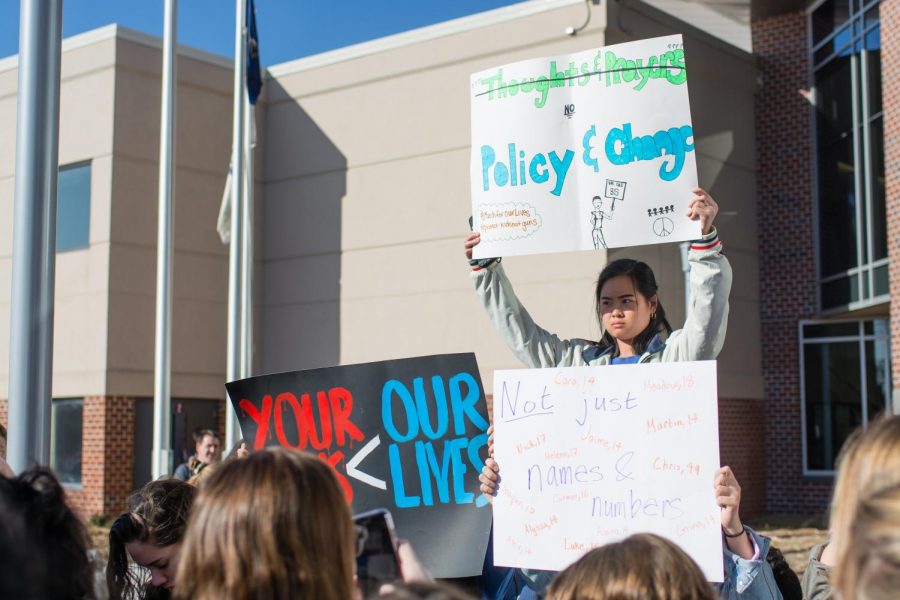Vigilance on Violence
Students shed light on preventing school violence
Following the Marjory Stoneman Douglas shooting, nationwide marches and walkouts sprouted up, and the heated debate on how to go about preventing school violence emerged in our dinner table talks and throughout our twitter feeds. The U.S.’s nearly 91 million students, 3.6 teachers and thousands of politicians propose a variety of solutions on how to prevent violence.
Assault weapon bans, more thorough background checks, and limits on where weapons can be possessed are all popular demands. However, amid the protests and gun control discussions are students with alternative voices.
Sophomores Ian Bengston and Nina Schendt believe that gun control is not the way to go about preventing school violence. They, instead, reason that peace can be achieved via other methods. A recurring theme is that arming teachers, security guards or veterans, ultimately eliminating gun-free zones, will lead to safer schools.
“I would take away most gun-free zones because 92% of school mass shootings happen in gun-free zones. I would have four or five security guards at a school and I would have them all armed. In terms of arming a few teachers, I would consider that. I think it could help, but then also there are some other issues that could go wrong,” Bengston said.
The range of support for arming adults at school varies, from those who fully back it to those debating its effectiveness to those who downright oppose it.
“I do not believe we should arm teachers because I don’t believe that would end well at all. However, I do think it is a wonderful idea to have retired vets who are trained and know what they’re doing be armed and work in schools providing us with a proper amount of protection,” Schendt said.
Some are confident in one solution; others find pros and cons in multiple ideas. Sophomore Gracie Schweers offers an opinion halfway between gun-free and gun-filled.
“I think that there are ways that we can alter the gun laws that would greatly reduce school violence, but I also think that there are some forms of gun control that could hurt us in the long run,” she said.
In the end, we all have different opinions. While we occasionally keep the peace, controversial issues can sometimes bring out the worst in us. It’s important to recognize that we all have the same goal: to make schools safer for the future generation. A part of making that happen is respectful conversation, so that even if a conclusion isn’t necessarily reached, at the least, we learn more about what others think and how we can, together, stop school violence.
“I don’t think that an argument between two people that results in name calling and insults is the way to go about it. I think that everyone should be listening to each other, not tearing each other down for having an opinion that the other doesn’t agree with,” Schweers said.

